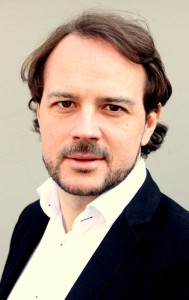Invitation to a special Postgraduate Research & Early Career Workshop with Dr. Julian Hanich, Assistant Professor of Film Studies, University of Groningen
“Reflecting Reflections: Notes on Complex Mirror Shots in Films”
10am-12pm* Thursday, 21 January 2016
Room: Jarman 7
Note: This event will kick off the winter term’s Film Reading Group
*Followed by coffee in the Gulbenkian, University of Kent
[To sign up, put your name on this Doodle Poll]
All PhD and MA students as well as early career researchers are warmly invited to this special research event. Julian Hanich is Assistant Professor of Film Studies at the University of Groningen. His expertise includes research in the areas:
Film and Emotion, Film and Phenomenology, Audience/Reception Studies, Genre Studies, and Film Aesthetics
Following his ARC and CFMR Research Seminar scheduled for Wednesday 20 January, entitled, “I, You and We: Ideas for a Phenomenology of the Collective Cinema Experience”, Dr. Hanich has agreed to meet with PG and early career researchers for an informal gathering about his research and career the next day.
Thursday, 21 January 2016 from 10am-12pm, Dr. Hanich will give a 45-minute presentation entitled, “Reflecting Reflections: Notes on Complex Mirror Shots in Films,“ followed by an open discussion. Participants are asked to have read his related paper entitled, “Complex Staging: The Hidden Dimensions of Roy Andersson’s Aesthetics“ (Movie: A Journal of Film Criticism, 2014), which can be downloaded here.
The final half-hour will be reserved to discuss Dr. Hanich’s experience as an early career researcher. This is a fantastic opportunity for PhDs and MAs interested in postgraduate and postdoctoral research. Abstract and full bio are available below.
Reflecting Reflections, Notes on Complex Mirror Shots in Films
A film scholar doing research on the term ‘mirror’ encounters four dominant domains in film studies. First, and most pervasively, there are countless studies employing the Lacanian concept of the mirror-stage, central to psychoanalytic film theory of the 1970s and 80s. Next, we find numerous publications using the word ‘mirror’ metaphorically: a film or group of films ‘mirrors’ or ‘reflects’ a culture, society, or historical period. Third, some studies interpret the mirror as a narrative motif and speculate about its meaning and signification. Finally, and more recently, cognitivist film scholars employ the concept of ‘mirror neurons’ to explain empathic processes.
However, little attention has been paid to what mirrors imply for the pictorial composition, the organization of filmic space and the spectator’s viewing activity in a given scene. This is what I will be interested in my presentation.
I will show that provided a mirror and its source of reflection assume a prominent role in the scene, they can change the way spectators look onto, look into and look beyond the filmic image, but also look at it in puzzled or questioning ways. More concretely this implies that (1) complex mirror shots may modify how spectators look onto the picture as a flat composition by way of a quasi-transformation of the screen shape. (2) They can function as a ‘magnetizing’ frame-within-the-frame that channels the viewer’s look into the ‘depth’ of the image. (3) By referring us to off-screen space and thus making us look beyond the image, they also allow for an intricately layered experience of perception and imagination, complicating our cognitive effort to ‘read’ the image. (4) Mirrors may, finally, be a source of spatial complication and can even lead to a full-blown disorientation regarding the status of the image, thus transforming the way viewers understand, problematize and look at the filmic image as such.
Short CV
Julian Hanich is Assistant Professor of Film Studies at the University of Groningen. From 2009 to 2012 he held a position as postdoctoral research fellow at the interdisciplinary research center “Languages of Emotion” at the Freie Universität Berlin. He studied North American Studies and Film Studies in Berlin, Berkeley and Munich and was a visiting researcher at UCLA and the University of Amsterdam. In 2010 he published a monograph on the phenomenology of fear at the movies, entitled Cinematic Emotion in Horror Films and Thrillers. The Aesthetic Paradox of Pleasurable Fear (Routledge). He also co-edited a volume of the German online journal Nach dem Film on Laughter in the Movie Theater and a book on filmic suggestion and the viewer’s imagination entitled Auslassen, Andeuten, Auffüllen. Der Film und die Imagination des Zuschauers (Fink). His articles have appeared in Screen, Projections, Necsus, Cinema Journal (forthcoming), Film-Philosophy, Movie, Jump Cut, The New Review of Film and Television Studies, Psychology of Aesthetics, Creativity and the Arts, Montage/AV, Zeitschrift für Ästhetik und allgemeine Kunstwissenschaft and Amerikastudien/American Studies.
See http://julianhanich.com/ and http://www.rug.nl/staff/j.hanich/
